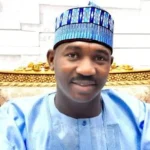In the dead heat of the crises from the causative facts of both public security and socioeconomic upheavals in the country, many argue that the effectiveness of Nigeria’s social and civil security and intelligence apparati might have long prevailed if only government responses were better coordinated and authorities had engaged more with local groups. Others claim that, in the absence of the civic habits and culture of cooperation required by a functioning state, all efforts at nation-building in places like Nigeria are destined to fail. Both positions are misleading, if not mistaken.
Exhibit A in the case against the skeptics is that nations have been built, and not just in homogeneous societies like Japan or Scandinavia. India, the largest democracy in the world, has developed a vibrant democratic process despite a traumatic partition, continent-like size, and just like Nigeria, a plethora of mutually antagonistic ethnicities. Brazil has a strong national identity and functioning democratic institutions despite sharp income inequality and deep regional and ethnic cleavages. The United States pulled itself together after a civil war that killed too many people to count.
But those examples are also paradoxical exhibits in the case against those optimists. Nation building is not a task for foreigners, or even foreign ideals. It would be quite difficult to find a historical example of a functioning and cohesive nation state being imported by the barrel of a gun. Mahatma Gandhi and Abraham Lincoln were not just locals for instance; they built local symbols and practices of shared values.
The evolution of human cooperation can help us to understand successful nation building. Evolution wired humans for certain kinds of cooperation, but has not gotten around to creating solutions for incipient globalist challenges. A hunter who did not collaborate closely with his fellow hunters risked being stomped to death by a wild elephant. But we are not good at cooperating with everyone. Along with solidarity with those in our hunting party comes hostility toward others who might want to hunt “our” prey.
Nation building has to do with expanding the circle of moral responsibility. Successful nation states – large or small, rich or poor – have one thing in common – citizens’ sense of a shared past and future. No matter how different we are, some of “your” concerns are also my concerns.
Still, the us-versus-them divide comes from our intuitions… which are basically decision-making rules that evolved so that we could decide in an instant whether the guy lurking behind the tree or in the bushes was a friend or foe. Those intuitions came from our own experience, from what our parents, mallams and pastors taught us, and from the cues we picked up from relatives and neighbours as well as cultural and political icons. And they, too, acquired their intuitions from a mixture of experience and imitation.
If our intuitions come from experience and learning, that means they can evolve. Sometimes, cultures and deeply held beliefs evolve very slowly – this is the Nigeria we live in today. This does not mean that we necessarily have to wait millennia until our moral and cultural intuitions evolve. Culture can change quickly. Consider beliefs about fairness. Some people grew up hearing that hard work pays, and came to believe it… others believe that success is due to good luck or good contacts. Are we stuck with such beliefs come what may? Apparently not. Being alive during the COVID pandemic makes a big difference – seeing many hard-working people lose their livelihoods makes one more inclined to believe that outcomes reflect fortune, not effort.
Most important, moral and political evolution happen not just by accident, but also by design. Leadership and policy matter. After independence, Nigerian politicians consolidated power by leveraging tribal fissures.
In Tanzania, for instance, Julius Nyerere emphasised a single Tanzanian national identity and the use of a single language – Swahili, even though he wasn’t Swahili himself. While post-independence Tanzania distributed public investment in education, health, and roads equitably across regions and groups, Nigeria’s regimes brazenly favoured areas chosen through sentimental patronage, where the core of the reigning head of state’s political support is formed. This pattern has been a recurring feature of Nigerian politics.
As it is, the northern and southern parts of the country seem to be heading for another showdown over control of the national honeypot from 2023. And it is not head of state’s tribal identity, but rather the institutions under which they operate, that explains the pattern. It is, however, heartwarming that President-elect Tinubu is reaching out to the political elite from the North in the hopes of averting this prospect.
It is clear that contrasting approaches affected values and outcomes in Nigeria and Tanzania. Ethnically diverse communities manage to govern themselves better – by raising more money for schools or for water projects – in Tanzania than in Nigeria. For a prolonged period, since that phenomenon took institutional root arguably after the return of democracy in Nigeria in 1999, Tanzanian economic growth rates were also faster than Nigerian rates, measures of governance and institutional quality consistently better, and national politics far less violent.
A sense of national belonging depends on symbols and shared rituals as much as it does on policies. Leaders can reset citizens’ expectations and build trust. Gandhi hung up his counsellor’s suit, donned the white Hindu garb, and led a 386-kilometer march to the sea to make salt. Nelson Mandela put on the jersey of the Springboks, South Africa’s historically all-white national rugby team, and 65,000 fans chanted his name. There it was: a newly democratic nation united under the banner of equality and mutual respect. This writer wants to believe that this is what the incoming president is gunning for. Just yesterday, he met one of his rivals in the concluded electoral race, who happens to be the indisputable godfather of Kano politics.
This writer also wants to believe that the skeptics are wrong… nations have been deliberately built in the past, and they will be again. Insha Allah. But the task today is much more subtle, difficult, and time-consuming than naive optimists ever guessed. The men – and especially the women – of Nigeria may now have to pay the price by learning to live thusly after the fact of material change.
 Join Daily Trust WhatsApp Community For Quick Access To News and Happenings Around You.
Join Daily Trust WhatsApp Community For Quick Access To News and Happenings Around You.

